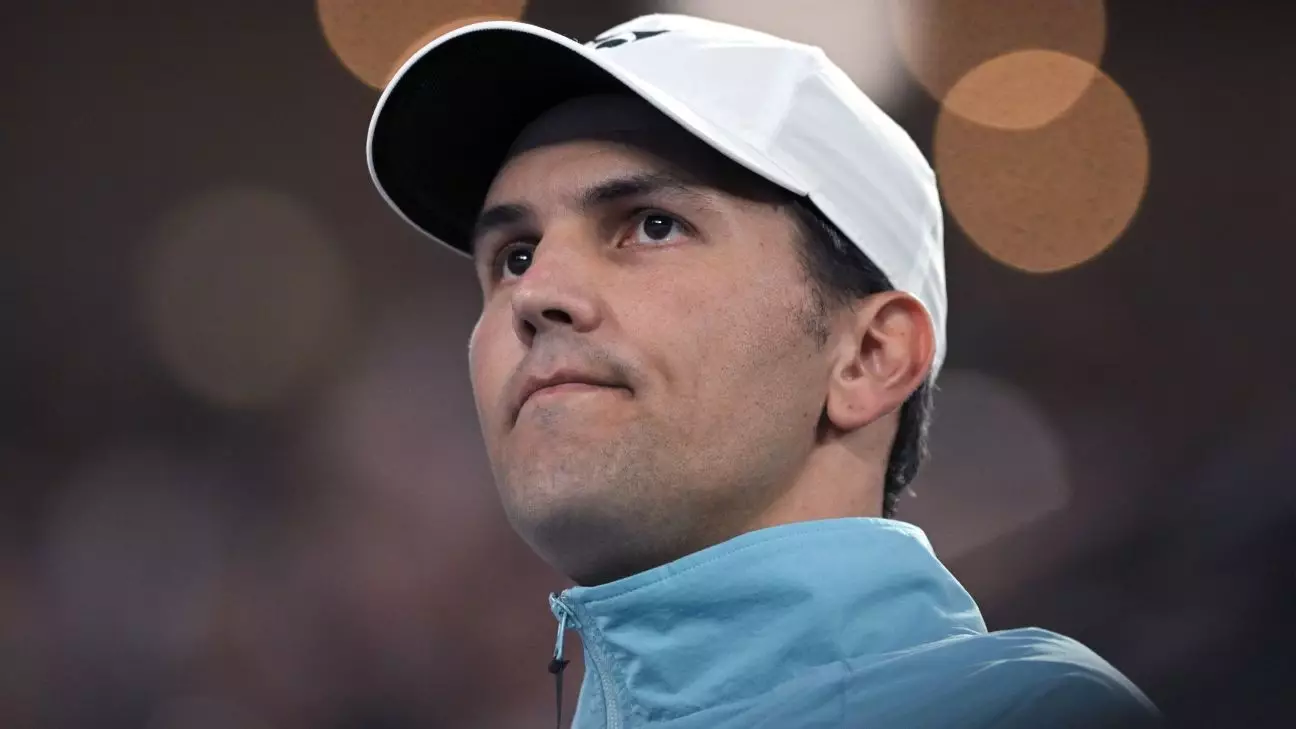The world of professional tennis often finds itself intertwined with the complexities of relationships between players and their coaches. The recent case involving Elena Rybakina’s former coach, Stefano Vukov, highlights not only the challenges athletes face but also the ethical standards upheld by governing bodies. The Women’s Tennis Association (WTA) confirmed that Vukov’s suspension remains in effect following the conclusion of an investigation into alleged violations of its code of conduct. While the specifics of the allegations were not disclosed, the importance of maintaining the integrity of the sport cannot be overstated.
Elena Rybakina, who achieved notable success by winning the 2022 Wimbledon Championship, expressed her disagreement with the WTA’s decision regarding Vukov’s suspension. Despite the ongoing uncertainty surrounding her former coach, Rybakina has made it clear that she does not feel mistreated by him. This assertion not only emphasizes Rybakina’s confidence in her previous coaching relationship but also puts a spotlight on the notion of perceived misconduct in professional sports. It raises essential questions about how personal experiences align with official actions and accusations.
The WTA issued a carefully worded statement confirming that the independent investigation about Vukov’s conduct had concluded but did not provide detailed insights or a timeline regarding the continuation of the suspension. The organization’s choice to maintain confidentiality protects the integrity of the investigation but leaves fans and players alike with a lingering sense of ambiguity. A prolonged suspension can have significant implications not just for Vukov’s career but, more critically, for Rybakina, who must navigate the professional landscape without her former mentor amidst changing coaching dynamics.
Rybakina’s coaching journey has recently seen notable shifts. After parting ways with Vukov, she announced her collaboration with 2001 Wimbledon champion Goran Ivanisevic. However, the season’s onset witnessed additional developments as Vukov appeared to re-enter Rybakina’s coaching picture before she competes at the Australian Open. This rollercoaster of coaching decisions underscores how an athlete’s performance and well-being can be intrinsically linked to stable coaching relationships. It also invites scrutiny about how external factors such as suspensions and investigations send ripples through an athlete’s training regimen and preparation.
The suspension of Stefano Vukov raises significant questions about the balance of power in coaching relationships and the processes governing athlete welfare. For Rybakina, the road ahead may be fraught with challenges, particularly as she grapples with the evolving dynamics of her support system. The pressure to perform while contending with such uncertainties allows a peek into the often turbulent lives of professional athletes. As this situation unfolds, stakeholders in tennis—be it the WTA, coaches, or players—must strive to uphold the highest ethical standards to ensure the sport remains a credible and nurturing environment for its athletes.


Leave a Reply